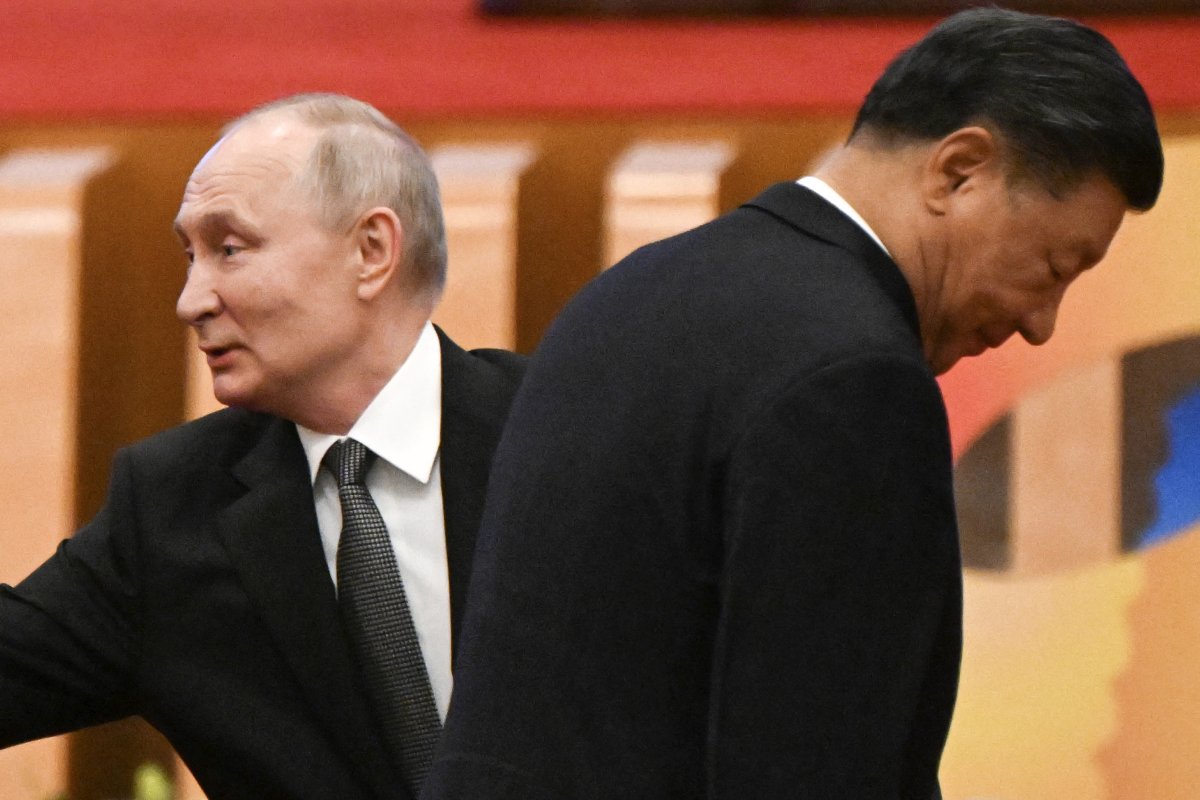Vladimir Putin may have touted close ties between the countries, but Russia could be becoming overly dependent on China for trade, economists have warned.
After the West sanctioned Russia as punishment for the war Putin started in February 2022, Russia divided the world into friendly and non-friendly countries, offering the former group favorable trade terms for its exports, the most key being oil and gas.
China is officially neutral on Putin's war and, as a friendly country, announced in December record trade between the countries in 2023. This reached $218 billion between January and November, more than the whole of the previous year.
Part of the trade expansion between the countries was down to the construction of the ESPO (Eastern Siberia–Pacific Ocean) oil pipeline between Russia and Asia, the Power of Siberia gas line, and opening the Yamal LNG (Liquefied Natural Gas) projects to significant Chinese investment.
Russia is also a big supplier of agriculture products such as wheat. The country in turn has increased imports of Chinese consumer and industrial goods, such as cars, which used to come from Western suppliers.

But Russian economists, Alexander Knobel from the Gaidar Institute and Alexander Firanchuk, from the Center for International Trade Studies, RANEPA, warned if China had to choose between the West and Russia, it would not favor Moscow.
Their report published on December 30 noted how China's main trading partners such as the EU, the U.S., Japan and South Korea are unfriendly to Moscow and sell more products to China than Russia does.
While China provides almost a third of Russia's trade, Russia's share in China's trade turnover—5.1 percent in imports and 3.3 percent in exports—"is much smaller than that of the main unfriendly countries and there are risks of declining trade in case of secondary sanctions."
"China's dependence on the supply of industrial goods from unfriendly countries significantly exceeds its dependence on the import of Russian raw materials," the report said. "There are risks of secondary sanctions affecting the mutual trade between China and Russia, particularly if imposed against individual companies."
Chris Weafer, chief executive officer of strategic consultants Macro-Advisory Ltd, which focuses on Russia and the Eurasia region, told Newsweek that, after a decade of its pivot toward Asia, Russia is as dependent on China for trade as it was with the West in 2014.
The increase in turnover has helped save the Russian economy in the face of sanctions linked to the war, but many officials and business leaders in Russia are concerned that the arrangement favors China far more than it does Russia.
"While China is eagerly buying energy and materials and selling Chinese-made goods to the Russia market, all of which suits Beijing, there is very little investment coming into Russia, certainly nothing like enough to replace the lost investment from exiting Western companies and investors."
Mayor of Moscow Sergei Sobyanin told the Moscow Economic Forum in October about his concerns regarding the pivot to the East after sanctions severed Russia's access to Western trade, investment and technologies.
Sobyanin said that, in the East, "nobody wants to give technology either in mechanical engineering, aircraft manufacturing, or in microelectronics."
Meanwhile, to reduce the dependency on China, there are calls among some in Russia to expand the BRICS [Brazil, Russia, India, China and South Africa] group of nations partly because it may allow Moscow to diversify trade partners.
"Oil, gas and other materials arriving into Chinese ports could be vulnerable to suspension or a blockade in the event of a major dispute with G7 nations," said Weafer, "but China now gets enough critical supplies direct from Russia to at least keep the economy working."
Showcasing their close ties following a year in which the Russian president met with his Chinese counterpart in both Moscow and Beijing, Xi sent Putin a New Year message of solidarity, saying that "mutually beneficial cooperation has continued to achieve new results."
Uncommon Knowledge
Newsweek is committed to challenging conventional wisdom and finding connections in the search for common ground.
Newsweek is committed to challenging conventional wisdom and finding connections in the search for common ground.
fairness meter
To Rate This Article
About the writer
Brendan Cole is a Newsweek Senior News Reporter based in London, UK. His focus is Russia and Ukraine, in particular ... Read more
To read how Newsweek uses AI as a newsroom tool, Click here.








